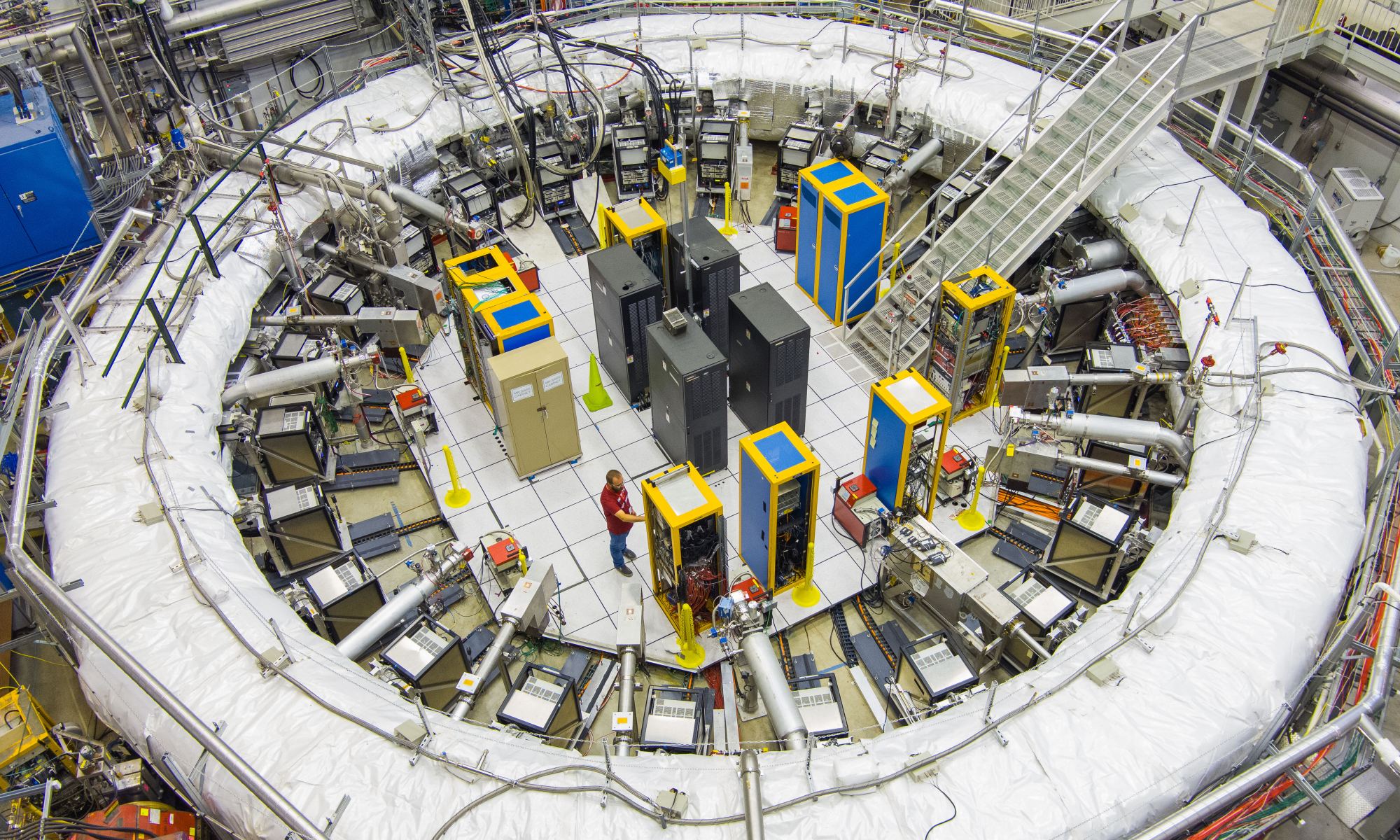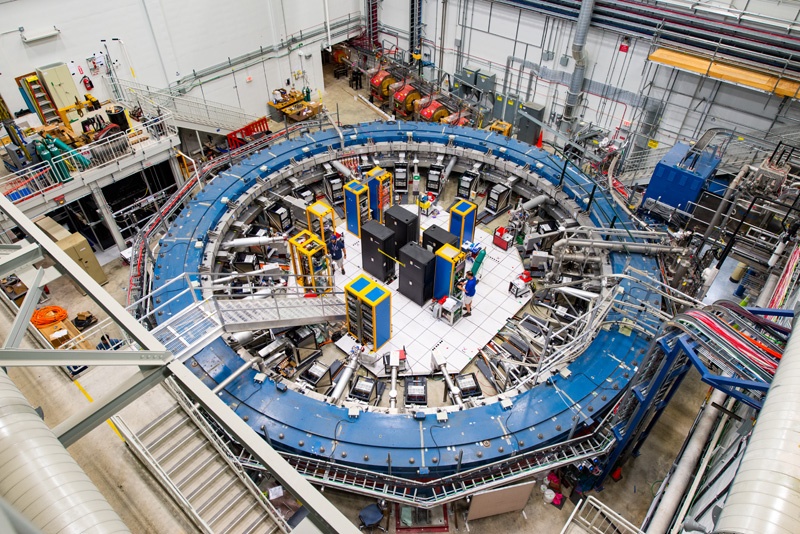At the Fermi National Accelerator Laboratory (aka. Fermilab), an international team of scientists is conducting some of the most sensitive tests of the Standard Model of Particle Physics. The experiment, known as Muon g-2, measures the anomalous magnetic dipole moment of muons, a fundamental particle that is negatively charged (like electrons) but over 200 times as massive. In a recent breakthrough, scientists at Fermilab made the world’s most precise measurement of the muon’s anomalous magnetic moment, improving the precision of their previous measurements by a factor of 2.
Continue reading “New Muon g-2 Result Improves the Measurement by a Factor of 2”New Muon g-2 Result Improves the Measurement by a Factor of 2


